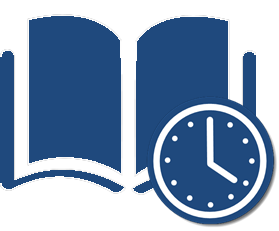An Overview of Selected Tools to Support Accessibility
Rob Power
Overview
What follows is by no means a complete list of digital technology and tools that could be used to support Accessibility for your students. I have included some of the resources that I previously compiled and presented along with my colleague, Dr. Sandra Jack-Malik (one of Canada’s foremost experts on reading support for language-based learning disabilities such as Dyslexia). I have also included links to several excellent toolkits shared by several Canadian institutions. Though they are not required reading, you may find it worthwhile to explore them now and become familiar with the types of resources they have to offer!
If you are participating in one of my instructional design or educational technology courses, you will have a chance to explore specific tools to support Accessible learning and remove barriers to accessibility, as groups lead sessions for their major course presentations. We will also have student-contributed chapters in another section of this eBook that explore these issues, tools, and strategies in greater detail.
Digital Tools to Support Learners with Dyslexia (and Other Accessibility Needs)
![]() This video was previously shared in the chapter on Meeting Basic Accessibility Standards for Educators, but it is worth reviewing here (if you have not already done so). In this webinar presentation, Dr. Sandra Jack-Malik and Dr. Rob Power provide an overview of some digital tools that can be used to support learners with Dyslexia.
This video was previously shared in the chapter on Meeting Basic Accessibility Standards for Educators, but it is worth reviewing here (if you have not already done so). In this webinar presentation, Dr. Sandra Jack-Malik and Dr. Rob Power provide an overview of some digital tools that can be used to support learners with Dyslexia.
Power, R., and Jack-Malik, S. (2021, May 18). Assistive Technology and Tools for Students and Adults with Dyslexia. [Webinar]. Dyslexia Canada.
While the webinar was hosted by Dyslexia Canada, the tools and resources discussed may be useful for students with a range of Accessibility needs. Power and Jack-Malik (2021) presented a range of tools in categories such as:
- Tools to Support Ear Reading
- Tools for Visual Reading
- Tools for Producing
Here is a comprehensive list of the assistive technology and tools covered in the presentation.
Dyslexia Canada has compiled even more information on the Tools page of their website.
Longer Reads
Toolkits to Support Accessible Teaching and Learning

- Coolidge, A., Doner, S., & Robertson, T. (2018). BCampus Open Education Accessibility Toolkit. [eBook]. BCampus. https://opentextbc.ca/accessibilitytoolkit/
- Council of Ontario Universities (2017a). Accessible Digital Documents & Websites. [Web page]. Accessible Campus. http://www.accessiblecampus.ca/reference-library/accessible-digital-documents-websites/
- Council of Ontario Universities (2017b). Accessibility in E-Learning. [Web page]. Accessible Campus. http://www.accessiblecampus.ca/tools-resources/educators-tool-kit/course-planning/accessibility-in-e-learning/
- Thompson Rivers University (2024). Accessibility… One Step Closer. [Web page]. https://onestep.trubox.ca/
References
Coolidge, A., Doner, S., & Robertson, T. (2018). BCampus Open Education Accessibility Toolkit. [eBook]. BCampus. https://opentextbc.ca/accessibilitytoolkit/
Council of Ontario Universities (2017a). Accessible Digital Documents & Websites. [Web page]. Accessible Campus. http://www.accessiblecampus.ca/reference-library/accessible-digital-documents-websites/
Council of Ontario Universities (2017b). Accessibility in E-Learning. [Web page]. Accessible Campus. http://www.accessiblecampus.ca/tools-resources/educators-tool-kit/course-planning/accessibility-in-e-learning/
Dyslexia Canada (n.d.). Tools. [Web page]. https://www.dyslexiacanada.org/en/tools
Power, R., and Jack-Malik, S. (2021, May 18). Assistive Technology and Tools for Students and Adults with Dyslexia. [Webinar]. Dyslexia Canada. https://youtu.be/RhDsRyJwe3U
Thompson Rivers University (2024). Accessibility… One Step Closer. [Web page]. https://onestep.trubox.ca/
